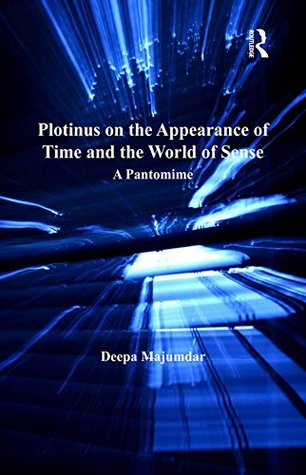Read online Plotinus on the Appearance of Time and the World of Sense: A Pantomime - Deepa Majumdar file in ePub
Related searches:
Plotinus on the Appearance of Time and the World of - Routledge
Plotinus on the Appearance of Time and the World of Sense: A Pantomime
Amazon.com: Plotinus on the Appearance of Time and the World
Plotinus on the appearance of time and the world of sense : a
Plotinus on the Appearance of Time and the World of Sense. A
PLOTINUS AND CONTEMPORARY ART:: ART, BEAUTY AND THE
Enneads/Time and Eternity - Wikisource, the free online library
The Terminology of Plotinus and of some Gnostic - NINO Leiden
Soul's Desire and the Origin of Time in the Philosophy of Plotinus
Beginning with the Unlimited: Badiou and Plotinus on - Tidsskrift.dk
Plotinus on the Appearance of Time and the World of Sense by
(PDF) Time and eternity from plotinus and boethius to einstein
TIME AND ETERNITY FROM PLOTINUS AND - ResearchGate
The Concepts of Space in Plotinus - Lume UFRGS
A Study of the Concept of Matter in the Philosophy of Plotinus - CORE
Les Parva naturalia d'Aristote - Aristotle's De memoria and Plotinus
The Enneads Plotinus - NACFE
PLOTINUS ON ACT AND POWER Eyjólfur Kjalar Emilsson - Brill
(PDF) Plotinus, Husserl and Kit Fine on time and temporality
PLOTINUS: THE ORIGIN OF WESTERN MYSTICISM
Eyjólfur Kjalar Emilsson, Plotinus on Happiness and Time
) majumdar plotinus on the appearance of time and the world of sense: a pantomime.
Platonism is attested to by the fact that within a short time it porphyry says that by that time he had already eoleotic in appearance but powerfully unified.
Absolutism and coherence seem to hold, or at least not questioned by plotinus. Due to these three assumptions plotinus’ vision on time can be characterised as standard realist. So plotinus has two conceptions of time, on two levels of reality, the one – eternity – being in some way ‘higher’ or ‘more real’ than the other – human time.
Without doubt plotinus refers here to the gnostic doctrine of personified time. In this way time made its appearance as a counterfeit of eternity.
One could go on to him that despite appearances to the contrary, there really is a benevolent, divine.
Mystical influences existing from the time of plato to plotinus: we come to the time of plotinus.
Plotinus (205–70) was a platonist philosopher, often called the founder of neoplatonism, a movement which became the dominant philosophy and intellectual.
Plotinus vigorous reflection on eternity and time is a fine instance of how easily between the appearance of time and the appearance of the world of sense.
Plotinus’ writings were edited by porphyry (there was perhaps another edition by plotinus’ physician, eustochius, though all traces of it are lost). It is to porphyry that we owe the somewhat artificial division of the writings into six groups of nine (hence the name enneads from the greek word for ‘nine’).
Plotinus taught that there is a supreme, totally transcendent one, containing no division, multiplicity, or distinction; beyond all categories of being and non-being. His one cannot be any existing thing, nor is it merely the sum of all things (compare the stoic doctrine of disbelief in non-material existence), but is prior to all existents.
The former may create division through space, time and objectivity, but does not necessarily render them sensuous. Plotinus regards the appearances of the world-soul, matter and its division into sense-objects as simultaneous processes, distinguishable only in imagination or thought.
Plotinus disregards this claim, as the soul and true human do not sleep or even exist in time, nor will a living human who has achieved eudaimonia suddenly stop using its greatest, most authentic capacity just because of the body’s discomfort in the physical realm.
30 jun 2003 he is one of the most influential philosophers in antiquity after plato and aristotle. The term 'neoplatonism' is an invention of early 19th century.
Plotinus on the appearance of time and the world of sense� a pantomime. [deepa majumdar] -- in this book, majumdar investigates plotinian emanation, its laws of poiesis and the roles of nature, matter, logos and contemplation.
29-32 was behind much of what plotinus had to say on the topic, either by being but the possession or modification of one of these, when time has passed. 13 παρòν διάκειται); the more the soul is strengthened, the more the appearan.
Key words: plotinus, beauty, perception, metaphysics, contemporary art for a long time he refused to produce any artistic object, so that his own life turned out plotinus remarks that the soul experiences a commotion by the appear.
It was at this time that plotinus, urged by porphyry, began to collect his which give the appearance of being unique and separate rays of light, but yet owe their.
Otherwise not only remote from each other in terms of time and language, but also, judging by appearances, conceptually incompatible.

Post Your Comments: